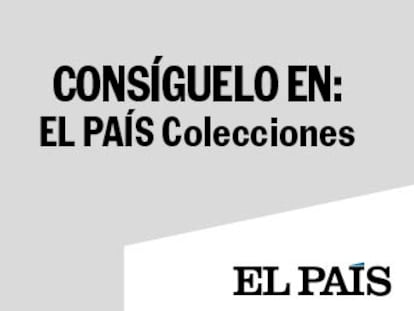Cable sobre la libertad de expresión en Egipto
| ID: | 44616 |
| Date: | 2005-11-07 14:59:00 |
| Origin: | 05CAIRO8498 |
| Source: | Embassy Cairo |
| Classification: | CONFIDENTIAL |
| Dunno: | 05CAIRO8139 |
| Destination: | This record is a partial extract of the original cable. The full text of the original cable is not available. |
C O N F I D E N T I A L SECTION 01 OF 02 CAIRO 008498 SIPDIS DEPT FOR NEA/ELA, DRL E.O. 12958: DECL: 11/07/2015 TAGS: PGOV, PHUM, SOCI, KISL, KMDR, EG, Democracy, Freedom SUBJECT: FREEDOM OF EXPRESSION AT ISSUE IN EGYPT REF: CAIRO 8139 Classified by ECPO Minister Counselor Michael H. Corbin for reasons 1.4 (b) and (d). ------- Summary ------- 1. (C) Egypt has witnessed two recent cases related to protection and expansion of freedom of speech. In the first case, State Security in Alexandria has arrested and detained a young blogger, Abdul Karim Nabil Soliman, apparently because his recent blog entries have carried strongly-worded attacks on Islam. While few in the Egyptian blogosphere have chosen to defend the substance of Abdul Karim's writings, and some analysts argue that Abdul Karim is engaging in hate-speech, many bloggers have argued that his detention is nevertheless a blow to freedom of speech in Egypt. In the second case, the Islamic Research Council of Al-Azhar has banned the import by the American University in Cairo Press of a new study by a Georgetown scholar of the origins and evolution of Wahhabi Islam, on the grounds that it is offensive to Islam. AUC is seeking to have the ban undone. End summary. -------- The Blog -------- 2. (C) As has been widely reported on blogs covering Egyptian current affairs, and also by the wire services, on October 26, Egyptian security personnel arrested and detained a 21 year old Alexandrian, Abdul Karim Nabil Soliman, a law student at the Damanhour branch of Al-Azhar University. The blog entries in question, in Arabic, can be found at www.karam903.blogspot.com and www.copts-united.com. His blog posts are notable for their strong criticism of the GOE and President Mubarak, but also for their scathing condemnation of the Muslim demonstrators who rioted in Alexandria on October 21-22 in protest of the St. George's Church play, "I Once Was Blind, But Now I Can See" (reftel). Among other charges, Abdul Karim said that the protestors represented "the true ugly face" of Islam, and that Al-Azhar University is a "foul" institution that is the moral equivalent of Al-Qaida. 3. (C) Egypt's leading bloggers (including Baheyya, MissMabrouk, and Sandmonkey) have all strongly condemned the arrest and detention of Abdul Karim, while also distancing themselves from the content of his writings. (For more information on Egypt's vibrant blogging community, see www.cairomagazine.com, "Speaking Out" in issue 26, October 6, 2005.) Hossam Baghat (protect) of the Egyptian Initiative for Personal Rights, an outspoken and reliable advocate of privacy rights, told poloff on November 6 that in his view, Abdul Karim's remarks cross the line into "blasphemy/contempt of religion," (Arabic: "izderaa al-adyan") and make it likely that he will stand trial before a criminal court. Baghat opined that Abdul Karim's writings verge on hate-speech. Various other analysts of Abdul Karim's writings including bloggers and Embassy Cairo LES staff have confirmed that Abdul Karim's writings do indeed appear to meet the GOE standard for blasphemy/contempt of religions. (Note: Under Egyptian law, blasphemy/contempt of religions is a vague standard that has been used to prosecute advocates of heterodox religions, including some Sufi Muslims, and homosexuals. End note.) 4. (C) In addition to Abdul Karim's own blog, his posts are also carried by www.copts-united.com, leading to local speculation that he may have been a convert to Christianity. Post has not been able to confirm this, nor have we been able to confirm speculation that he may have been planning to travel to the Washington to attend the planned conference on November 16-19 organized by Switzerland-based Coptic activist Adly Abadeer to protest alleged discrimnation and persecution of Egypt's Copts. -------- The Book -------- 5. (C) According to AUC Provost Tim Sullivan and AUC Press Director Mark Linz, AUC Press had sought to import 1000 copies of "Wahhabi Islam: From Revival and Reform to Global Jihad," by Natana De Long-Bas of Georgetown's Center for Muslim-Christian Understanding. AUC had an agreement with Oxford University Press and IB Tauris to handle publishing and distribution in Egypt. On October 8, AUC learned from the GOE that the book would be impounded at Port Said because it contained "information not in accordance with the principles of Islam." 6. (C) Censorship of this sort in Egypt originates with the Islamic Research Center of Al-Azhar, which reviewed the book earlier this year and recommended to Al-Azhar that it be banned. According to the pro-Government newspaper "Al-Gomhouriya," which broke the story on October 27, Al-Azhar supported the ban, which the GOE has enforced, on the grounds that "the book was full of mistakes and grudges against Islam and because it cast doubt on the Quran." 7. (SBU) In a media release, AUC Press noted that although it is aware of the GOE's censorship regulations and respects the position of Al-Azhar on such issues, it remains committed to academic freedom. AUC "objects in principle to censorship of scholarly and academic works and it hopes that this decision will be reversed at some point in the near future." 8. (C) Comment: Post has not yet seen a copy of the book, though AUC Press Director Linz shared with us excerpts of the text. Based on what we have seen and been able to unearth through reviews and other commentary, the book does not appear to traffic in the sort of charges and attacks that Al-Azhar is alleging. We note that one argument that the book makes that may not appeal to the GOE is that Wahhabi Islam emerged initially as a reformist trend within the faith that was later perverted by the hardline influences of Salafist/Takfiri idealogues, especially the influential Egyptian thinker Sayid Qutb. End comment. ------- Comment ------- 9. (C) These two unresolved cases are illustrative of challenges that the GOE must address if Egypt's nascent political reforms are to be consolidated and expanded in a manner that leads to meaningful social reform. Freedom of expression in Egypt, including freedom of the Internet, has made significant strides in recent years. There is a profusion of new newspapers and periodicals, many of which publish strident, even scurrilous criticisms of the GOE and President Mubarak. Similarly, the Internet in Egypt--which is available to anyone with a PC, modem and local phone service--has witnessed a flowering of critical discussion, debate, and dialogue about Egypt's politics and society. The GOE deserves commendation for its general support for freedom of speech, which is resulting in real progress in public dialogue and information. 10. "Redlines" clearly remain, however. The GOE has periodically blocked the Muslim Brotherhood website (www.ikhwanonline.com), as well as other sites linked with extremist groups. The Abdul Karim case appears to be the first instance of a GOE crackdown on a blogger. As such, it is an unwelcome development. Due to the controversial nature of Abdul Karim's writings, however, we do not advocate making Abdul Karim a poster-child for freedom of expression in Egypt. As the Wahhabi book and the Alexandria blog cases suggest, Egypt's remaining redlines for freedom of expression are linked to commentary on Islam that is perceived by the GOE to be harmful or otherwise disruptive. In the days ahead, the Embassy will continue to closely track the developments in these controversial cases. End comment. RICCIARDONE |
Traducción automática. Puede que el texto traducido no sea fiel al original
Tu suscripción se está usando en otro dispositivo
¿Quieres añadir otro usuario a tu suscripción?
Si continúas leyendo en este dispositivo, no se podrá leer en el otro.
FlechaTu suscripción se está usando en otro dispositivo y solo puedes acceder a EL PAÍS desde un dispositivo a la vez.
Si quieres compartir tu cuenta, cambia tu suscripción a la modalidad Premium, así podrás añadir otro usuario. Cada uno accederá con su propia cuenta de email, lo que os permitirá personalizar vuestra experiencia en EL PAÍS.
¿Tienes una suscripción de empresa? Accede aquí para contratar más cuentas.
En el caso de no saber quién está usando tu cuenta, te recomendamos cambiar tu contraseña aquí.
Si decides continuar compartiendo tu cuenta, este mensaje se mostrará en tu dispositivo y en el de la otra persona que está usando tu cuenta de forma indefinida, afectando a tu experiencia de lectura. Puedes consultar aquí los términos y condiciones de la suscripción digital.



















